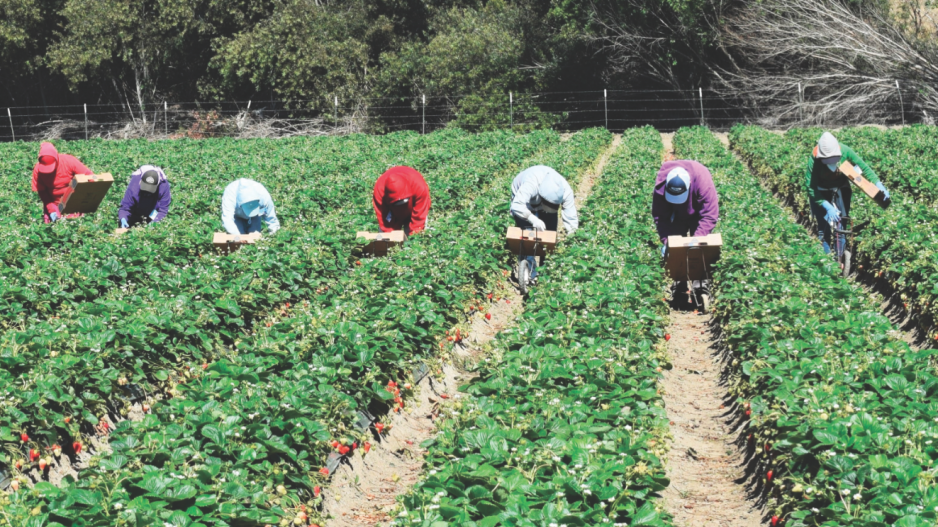What happened: Ottawa introduces exemptions for temporary foreign workers to assist farmers amid COVID-19 pandemic
Why it matters: Measures are needed to help maintain the country’s food security, according to agriculture minister
Temporary foreign workers (TFW) will be allowed into Canada this spring to help farmers amid unprecedented travel restrictions on non-citizens and non-residents brought on by the COVID-19 pandemic.
But employers will be required to isolate workers for 14 days after entry into the country or else risk losing the ability to hire TFWs, the federal government said in a March 20 announcement.
“There will always be jobs available for Canadians who want to work on farms and food-processing plants,” Agriculture Minister Marie-Claude Bibeau said at a ministers briefing the day after the announcement.
She said the exemptions are meant to maintain continuity within the food supply chain, adding Canada’s food security depends on assistance from 60,000 workers.
Workers will be arriving on flights chartered by industry and paid for by employers, and Bibeau said government is still finalizing protocol for preventative isolation for the TFWs.
Exemptions apply to seasonal agricultural workers, fish and seafood workers, and caregivers.
The federal government will also be waiving the Labour Market Impact Assessment for these workers for the next months and increasing the maximum employment period in the low-wage category from one year to two years.
The government is urging exempted workers not to attempt travel to Canada just yet as the exemptions will not be in place until early next week.
The measures go into effect as Canada closes its border with the U.S. to all non-essential travel, such as recreation and tourism.
International students whose study permits were approved by March 18 will also be exempt from restrictions, as will permanent residents yet to arrive in the country as of March 16.




